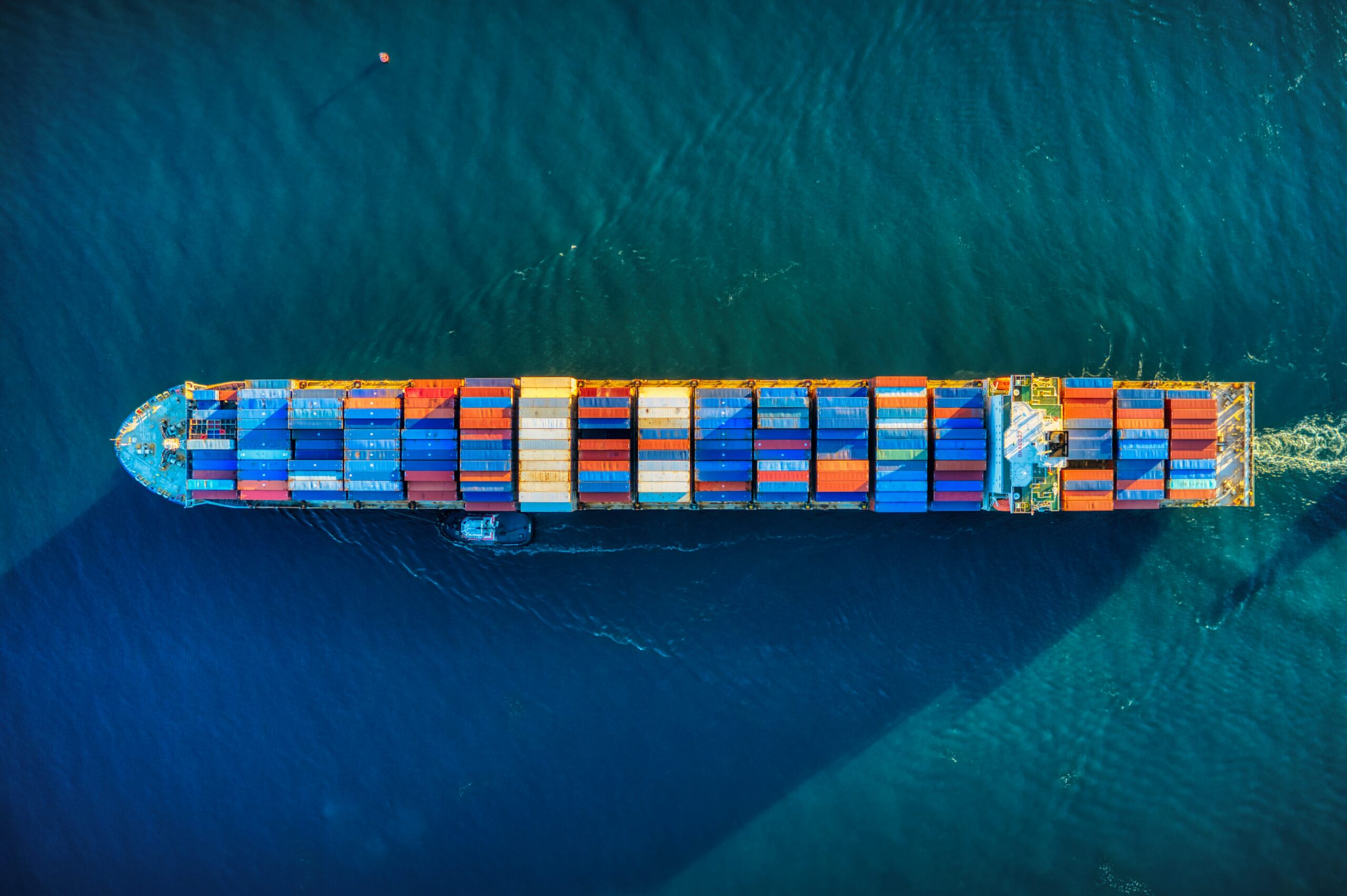
Merchant vessel generate nearly3% of the world yearly CO² emissions – by and large the same amount that is produced by Germany alone. With more than 50 000 vessel in circulation, the industry consumes an extraordinary amount of fuel.
An European quest
In a conscious effort to find a more ecological, less impacting and more renewable energy source, the industry faces a problem of scale: either it engages in a transition to non fossil fuels without the guarantee of sufficient supply for its needs, or, it waits for the production capacity to reach its needs. The proverbial chicken and egg situation.
Methanol a promising fuel
Methanol is part of the alcohol family and can be used, amongst others usages, as a vehicle fuel. In its biomethanol form, the fuel is produced from biomass, such as agricultural waste. Heat, steam, and oxygen convert it into useful fuels, including methanol. A newer by-product, e-methanol, uses electricity ( such as that produced by wind turbine) to split water into oxygen and hydrogen. Carbon dioxide is then combined to the result to make the fuel.
In the quest for alternative fuels, methanol present the following two major advantages:
- The fuel does not need to be stored under pressure, or extreme cold – and most ports are already equipped.
- A zero balance life cycle: a crude life cycle analysis estimated that the CO² that is released during the use as a fuel is more or less equivalent to the quantity that is used during the production process – thereby cancelling out its emissions.
A drop in the ocean
In this situation, Maersk, with a fleet of nearly 700 vessels has just announced its decision to purchase 12 new vessels that are intended to be powered by biomethanol. Each vessel will be able to hold 16 000 containers in one loading. This decision, fully knowing that at full usage the ships would use 15 times the fuel currently being produced per annum. The company is assuming by publicly speaking about the upcoming surge in demand, the supply side will be stimulated to increase its capacity with the prospect of a growing market.
Here at KAPA REYNOLDS, we would like to applaud this initiative. Though still minor on the market, this type of vessel lets us foresee a real solution to improve the environmental impact of shipments. And more than anything a decision that shows a continuous effort to improve operations through transportation efficiency – one of our CSR objectives.
Showing real entrepreneurship and innovation, Maersk are acting on a will to move forwards – with an analysis of the greater ripple effects in mind. It will allow the industry to trial a road to improvement and test it’s advantages in “real life”. In so doing, Maersk should reduce their emissions by 1.5tons of CO² per annum – a 4.5% improvement on its total emission. A step, not a revolution. A step, that should allow the rest of the fuel branch to follow in tow. Motor productions, green methanol transformation will all benefit from this new commercial outcome and may improve overall our alternative to fossil fuels at a larger scale – planes, cars, generators etc…
First steps
This decision echoes with us as it reflects our values and vision.
At our scale, we strive to apply to ourselves the same spirit of continuous improvement and entrepreneurship. We are fast developing a range of products that show an improved ratio of resources to performance. As an illustration, since 2019, we offer a fully natural Nespresso compatible coffee capsule. So far, the sales of this product have allowed us to spare more than 1 ton of aluminium. In each of our domains of expertise we offer alternatives that, by being disruptive, offer a radically new option in terms of in use performance and responsible resource consumption.
Through this article we would like to shed our modest light on Maersk remarkable initiative and in doing so praise and support those that have the drive and courage to stick to their values, taking decisions that are destined to improve their environmental impact , whatever the scale.
